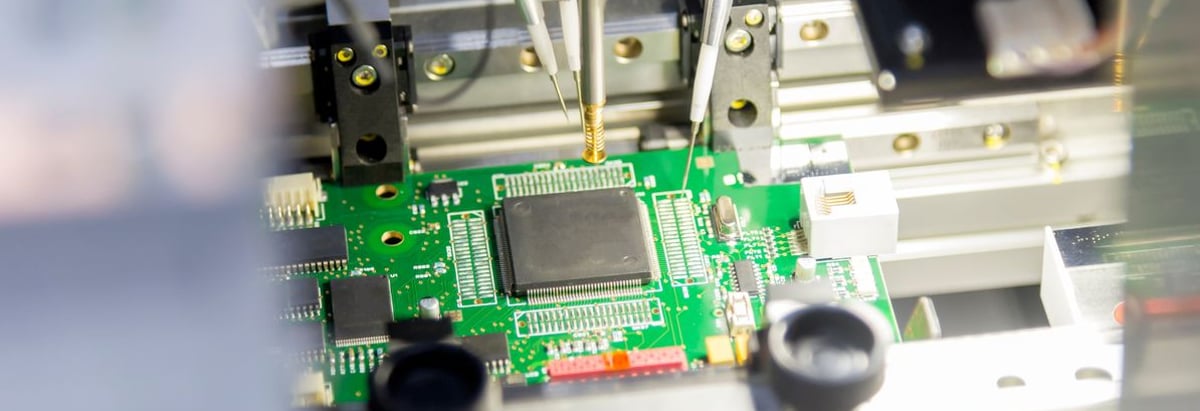Stock Analysis
- Japan
- /
- Semiconductors
- /
- TSE:7729
Tokyo Seimitsu (TSE:7729) Has A Somewhat Strained Balance Sheet

Warren Buffett famously said, 'Volatility is far from synonymous with risk.' So it might be obvious that you need to consider debt, when you think about how risky any given stock is, because too much debt can sink a company. We note that Tokyo Seimitsu Co., Ltd. (TSE:7729) does have debt on its balance sheet. But the real question is whether this debt is making the company risky.
When Is Debt A Problem?
Debt and other liabilities become risky for a business when it cannot easily fulfill those obligations, either with free cash flow or by raising capital at an attractive price. If things get really bad, the lenders can take control of the business. However, a more usual (but still expensive) situation is where a company must dilute shareholders at a cheap share price simply to get debt under control. Of course, the upside of debt is that it often represents cheap capital, especially when it replaces dilution in a company with the ability to reinvest at high rates of return. The first step when considering a company's debt levels is to consider its cash and debt together.
Check out our latest analysis for Tokyo Seimitsu
How Much Debt Does Tokyo Seimitsu Carry?
You can click the graphic below for the historical numbers, but it shows that as of June 2024 Tokyo Seimitsu had JP¥22.8b of debt, an increase on JP¥12.3b, over one year. But it also has JP¥38.6b in cash to offset that, meaning it has JP¥15.8b net cash.
How Healthy Is Tokyo Seimitsu's Balance Sheet?
We can see from the most recent balance sheet that Tokyo Seimitsu had liabilities of JP¥48.0b falling due within a year, and liabilities of JP¥18.6b due beyond that. Offsetting these obligations, it had cash of JP¥38.6b as well as receivables valued at JP¥39.5b due within 12 months. So it can boast JP¥11.5b more liquid assets than total liabilities.
This surplus suggests that Tokyo Seimitsu has a conservative balance sheet, and could probably eliminate its debt without much difficulty. Simply put, the fact that Tokyo Seimitsu has more cash than debt is arguably a good indication that it can manage its debt safely.
The modesty of its debt load may become crucial for Tokyo Seimitsu if management cannot prevent a repeat of the 24% cut to EBIT over the last year. When it comes to paying off debt, falling earnings are no more useful than sugary sodas are for your health. The balance sheet is clearly the area to focus on when you are analysing debt. But ultimately the future profitability of the business will decide if Tokyo Seimitsu can strengthen its balance sheet over time. So if you want to see what the professionals think, you might find this free report on analyst profit forecasts to be interesting.
Finally, while the tax-man may adore accounting profits, lenders only accept cold hard cash. While Tokyo Seimitsu has net cash on its balance sheet, it's still worth taking a look at its ability to convert earnings before interest and tax (EBIT) to free cash flow, to help us understand how quickly it is building (or eroding) that cash balance. Over the last three years, Tokyo Seimitsu recorded negative free cash flow, in total. Debt is usually more expensive, and almost always more risky in the hands of a company with negative free cash flow. Shareholders ought to hope for an improvement.
Summing Up
While it is always sensible to investigate a company's debt, in this case Tokyo Seimitsu has JP¥15.8b in net cash and a decent-looking balance sheet. So although we see some areas for improvement, we're not too worried about Tokyo Seimitsu's balance sheet. There's no doubt that we learn most about debt from the balance sheet. But ultimately, every company can contain risks that exist outside of the balance sheet. For example, we've discovered 2 warning signs for Tokyo Seimitsu (1 is potentially serious!) that you should be aware of before investing here.
Of course, if you're the type of investor who prefers buying stocks without the burden of debt, then don't hesitate to discover our exclusive list of net cash growth stocks, today.
Valuation is complex, but we're here to simplify it.
Discover if Tokyo Seimitsu might be undervalued or overvalued with our detailed analysis, featuring fair value estimates, potential risks, dividends, insider trades, and its financial condition.
Access Free AnalysisHave feedback on this article? Concerned about the content? Get in touch with us directly. Alternatively, email editorial-team (at) simplywallst.com.
This article by Simply Wall St is general in nature. We provide commentary based on historical data and analyst forecasts only using an unbiased methodology and our articles are not intended to be financial advice. It does not constitute a recommendation to buy or sell any stock, and does not take account of your objectives, or your financial situation. We aim to bring you long-term focused analysis driven by fundamental data. Note that our analysis may not factor in the latest price-sensitive company announcements or qualitative material. Simply Wall St has no position in any stocks mentioned.
About TSE:7729
Tokyo Seimitsu
Manufactures and sells semiconductor production equipment (SPE) and measuring instruments in Japan.


